Check out the link below to Barnes & Noble for the book:
https://www.barnesandnoble.com/w/jfk-and-the-unspeakable-james-w-douglass/1101376731
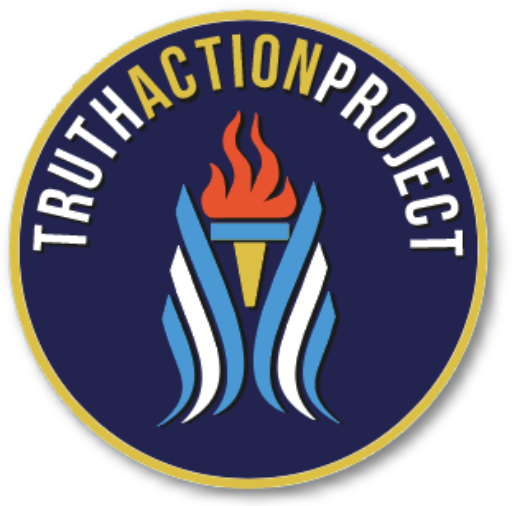

Why should we care about knowing the truth about John F. Kennedy’s assassination?
A poll that got a headline on Yahoo News reports that 75% of those polled do not believe the official criminal theory that JFK’s assassination was the work of a lone gunman, namely, Lee Harvey Oswald. Significantly, only 25% of Americans believe the Warren Commission report, a vast 8-volume set that rationalizes Arlen Specter’s famous “single bullet, single gunman” conspiracy theory.
Shouldn’t this collective doubt alone be grounds for a new, transparent investigation of JFK’s assassination?
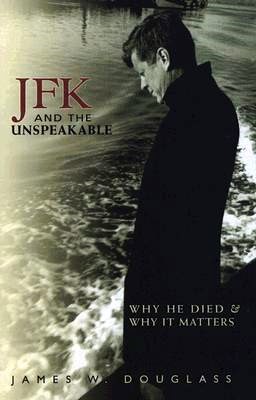
In JFK and the Unspeakable: Why He Died and Why It Matters (2008), author James W. Douglas avails himself of the most recent revelations of the plot to kill Kennedy and provides one of the most plausible explanations for JFK’s assassination. The unspeakable is the suggestion that agents of the American security state establishment, namely, the CIA, the FBI, and the Secret Service, killed the president.
While Douglas does not build a definitive criminal case (beyond a reasonable doubt) for the conspirators in JFK’s murder, this book clearly shows that government agents were negligent in JFK’s death by a preponderance of evidence.
After reading this book, the reader is left with a preposterous but plausible explanation for Kennedy’s assassination. Essentially, the author puzzles out a motive and cover-up by government actors to show how Kennedy threatened the growth and development and policy objectives of what Eisenhower famously warned about: the danger of the military industrial complex to American democracy.
Douglas’s analysis paints President Kennedy’s assassination as a result of Kennedy’s failure to stay on course with the national security state leaders, then led by Allen Dulles; Dulles was fired by Kennedy but was later brought back into government to act as an executive director of the Warren Commission and oversee the crafting of the Warren Commission report.
Kennedy, Douglas shows, embraced the possibility of peace in the world and sought to scale back, or temper the Cold War fever endemic among the Chiefs of Staff, the CIA and FBI.
The notion that Kennedy was a friend of the peace movement is not how he is most often portrayed; instead, though heralded as from “Camelot,” he is often portrayed as a hawk and as the one responsible for getting us into the Vietnam War.
To re-brand Kennedy as a peace president, Douglas opens his analysis with a discussion of Thomas Merton, a Trappist Monk and peace advocate who was in correspondence with members of the American elite about pursuing peace given the development of the nuclear bomb and its horrible implications.
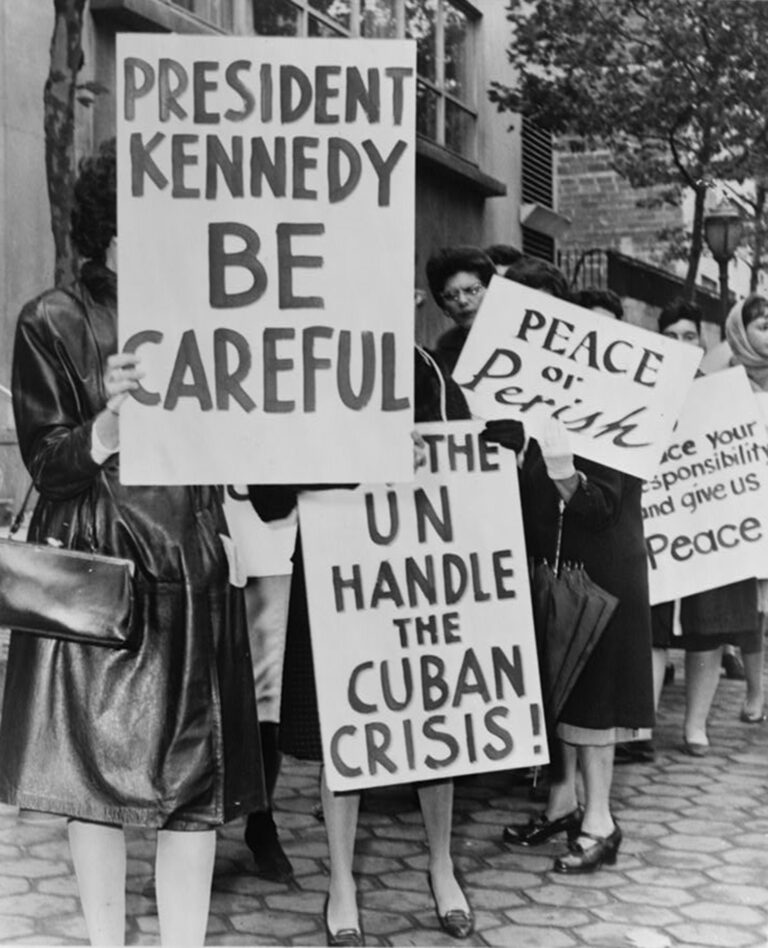
The author provides a meticulous review of events in a multi-time frame structure, but Merton’s call for peace serves as a backdrop to Kennedy’s intellectual milieu.Kennedy personally experienced the horror of war, but as president, he stood on the brink of nuclear annihilation and had to balance his personal views with a military establishment pushing for a first nuclear strike against Russia that would lead to millions of people dying on both sides.
One poignant takeaway from this revision of the Kennedy presidency as one orienting toward “not war” is that Kennedy’s assassination then put policy on a certain “yes war” path. His death robbed the country of an alternative historical trajectory that could have put the United States on a less bellicose course than was carried out in the Vietnam War and has followed the 9/11 attacks.
Kennedy wanted to avoid nuclear war, and he saw the possibility of peace as the logical path to follow. To that end, Kennedy sought private channels for talks with Khrushchev and Fidel Castro because he did not trust the establishment staff; to further alienate the warhawks, Kennedy sought to negotiate settlements with nationalist leaders from post-colonial countries rather than waging covert war against communist opponents, as was customary.
Douglas shows how Kennedy’s experience in war tempered his attitude about it and how his intellectual life enabled him to appreciate the absolute horror a nuclear war conjured up, but these dispositions destined him to be at odds with his State Department, Joint Chiefs of Staff, CIA, and even the Secret Service. As horrible and preposterous as this sounds, President Kennedy was betrayed by his own people.
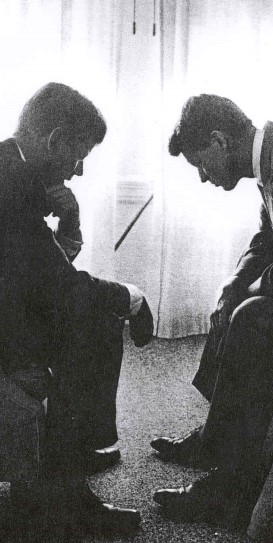
JFK and the Unspeakable dishes up a number of eye-popping revelations that plausibly review the complicated plot that brought down the president. The total truth cannot ever be known because most of the perpetrators have died of old age and taken the truth to the grave. However, the author provides a virtual indictment of key individuals across multiple departments of government that makes a solid case for a government conspiracy to kill the president and cover up the plot.
Douglas provides extensive footnotes to document his review of the motives for and the events preceding and following the assassination. But what is the reader to do with a book that takes you to the edge of the moral abyss and exposes you to an unspeakable horror, the same horror that reared its ugly head in the 9/11 attacks? And why does JFK’s death matter?
The author hopes a peace movement might develop that picks up where Kennedy left off in 1963. Indeed, foundational to the premise of JFK and the Unspeakable is a speech Kennedy gave to the graduating class at the American University in which he calls for peace, nuclear disarmament, respect for national movements in post-colonial countries, and unilaterally announces that the U.S. would cease atmospheric testing of hydrogen bombs (up to which time the U.S. had exploded 70 in the South Pacific).
This speech shows Kennedy’s peace credentials but also highlights the collision course he was on with agents of the national security state.
To honor Kennedy and get justice for his assassination, a peace movement must demand accountability of the government with an independent and transparent investigatory commission that would have access to all relevant information to reveal the truth about JFK’s murder and the events of 9/11.
In this book about JFK, Douglas quietly invokes Ghandi’s nonviolent call for a revolution that would build a world at peace and, by implication, drive governments to marshal all necessary resources to repair the earth and affirm the dignity of human-kind as eco-stewards of the earth, a vision that is diametrically opposed to the objectives and interests of the military industrial complex.
JFK and the Unspeakable: Why He Died and Why It Matters is a book by theologian and Catholic Worker James W. Douglass that analyzes the presidency of John F. Kennedy as well as the events surrounding his assassination. The book is drawn from many sources, including the Warren Report.
Originally published in 2008, HERE.
Check out the link below to Barnes & Noble for the book:
https://www.barnesandnoble.com/w/jfk-and-the-unspeakable-james-w-douglass/1101376731

Why should we care about knowing the truth about John F. Kennedy’s assassination?
A poll that got a headline on Yahoo News reports that 75% of those polled do not believe the official criminal theory that JFK’s assassination was the work of a lone gunman, namely, Lee Harvey Oswald. Significantly, only 25% of Americans believe the Warren Commission report, a vast 8-volume set that rationalizes Arlen Specter’s famous “single bullet, single gunman” conspiracy theory.
Shouldn’t this collective doubt alone be grounds for a new, transparent investigation of JFK’s assassination?

In JFK and the Unspeakable: Why He Died and Why It Matters (2008), author James W. Douglas avails himself of the most recent revelations of the plot to kill Kennedy and provides one of the most plausible explanations for JFK’s assassination. The unspeakable is the suggestion that agents of the American security state establishment, namely, the CIA, the FBI, and the Secret Service, killed the president.
While Douglas does not build a definitive criminal case (beyond a reasonable doubt) for the conspirators in JFK’s murder, this book clearly shows that government agents were negligent in JFK’s death by a preponderance of evidence.
After reading this book, the reader is left with a preposterous but plausible explanation for Kennedy’s assassination. Essentially, the author puzzles out a motive and cover-up by government actors to show how Kennedy threatened the growth and development and policy objectives of what Eisenhower famously warned about: the danger of the military industrial complex to American democracy.
Douglas’s analysis paints President Kennedy’s assassination as a result of Kennedy’s failure to stay on course with the national security state leaders, then led by Allen Dulles; Dulles was fired by Kennedy but was later brought back into government to act as an executive director of the Warren Commission and oversee the crafting of the Warren Commission report.
Kennedy, Douglas shows, embraced the possibility of peace in the world and sought to scale back, or temper the Cold War fever endemic among the Chiefs of Staff, the CIA and FBI.
The notion that Kennedy was a friend of the peace movement is not how he is most often portrayed; instead, though heralded as from “Camelot,” he is often portrayed as a hawk and as the one responsible for getting us into the Vietnam War.
To re-brand Kennedy as a peace president, Douglas opens his analysis with a discussion of Thomas Merton, a Trappist Monk and peace advocate who was in correspondence with members of the American elite about pursuing peace given the development of the nuclear bomb and its horrible implications.
The author provides a meticulous review of events in a multi-time frame structure, but Merton’s call for peace serves as a backdrop to Kennedy’s intellectual milieu.Kennedy personally experienced the horror of war, but as president, he stood on the brink of nuclear annihilation and had to balance his personal views with a military establishment pushing for a first nuclear strike against Russia that would lead to millions of people dying on both sides.
One poignant takeaway from this revision of the Kennedy presidency as one orienting toward “not war” is that Kennedy’s assassination then put policy on a certain “yes war” path. His death robbed the country of an alternative historical trajectory that could have put the United States on a less bellicose course than was carried out in the Vietnam War and has followed the 9/11 attacks.
Kennedy wanted to avoid nuclear war, and he saw the possibility of peace as the logical path to follow. To that end, Kennedy sought private channels for talks with Khrushchev and Fidel Castro because he did not trust the establishment staff; to further alienate the warhawks, Kennedy sought to negotiate settlements with nationalist leaders from post-colonial countries rather than waging covert war against communist opponents, as was customary.

Douglas shows how Kennedy’s experience in war tempered his attitude about it and how his intellectual life enabled him to appreciate the absolute horror a nuclear war conjured up, but these dispositions destined him to be at odds with his State Department, Joint Chiefs of Staff, CIA, and even the Secret Service. As horrible and preposterous as this sounds, President Kennedy was betrayed by his own people.
JFK and the Unspeakable dishes up a number of eye-popping revelations that plausibly review the complicated plot that brought down the president. The total truth cannot ever be known because most of the perpetrators have died of old age and taken the truth to the grave. However, the author provides a virtual indictment of key individuals across multiple departments of government that makes a solid case for a government conspiracy to kill the president and cover up the plot.
Douglas provides extensive footnotes to document his review of the motives for and the events preceding and following the assassination. But what is the reader to do with a book that takes you to the edge of the moral abyss and exposes you to an unspeakable horror, the same horror that reared its ugly head in the 9/11 attacks? And why does JFK’s death matter?
The author hopes a peace movement might develop that picks up where Kennedy left off in 1963. Indeed, foundational to the premise of JFK and the Unspeakable is a speech Kennedy gave to the graduating class at the American University in which he calls for peace, nuclear disarmament, respect for national movements in post-colonial countries, and unilaterally announces that the U.S. would cease atmospheric testing of hydrogen bombs (up to which time the U.S. had exploded 70 in the South Pacific).
This speech shows Kennedy’s peace credentials but also highlights the collision course he was on with agents of the national security state.
To honor Kennedy and get justice for his assassination, a peace movement must demand accountability of the government with an independent and transparent investigatory commission that would have access to all relevant information to reveal the truth about JFK’s murder and the events of 9/11.
In this book about JFK, Douglas quietly invokes Ghandi’s nonviolent call for a revolution that would build a world at peace and, by implication, drive governments to marshal all necessary resources to repair the earth and affirm the dignity of human-kind as eco-stewards of the earth, a vision that is diametrically opposed to the objectives and interests of the military industrial complex.
JFK and the Unspeakable: Why He Died and Why It Matters is a book by theologian and Catholic Worker James W. Douglass that analyzes the presidency of John F. Kennedy as well as the events surrounding his assassination. The book is drawn from many sources, including the Warren Report.
Originally published in 2008, HERE.
Check out the link below to Barnes & Noble for the book:
barnesandnoble.com/w/jfk-and-the-unspeakable-james-w-douglass/1101376731
Why should we care about knowing the truth about John F. Kennedy’s assassination?

A poll that got a headline on Yahoo News reports that 75% of those polled do not believe the official criminal theory that JFK’s assassination was the work of a lone gunman, namely, Lee Harvey Oswald. Significantly, only 25% of Americans believe the Warren Commission report, a vast 8-volume set that rationalizes Arlen Specter’s famous “single bullet, single gunman” conspiracy theory.
Shouldn’t this collective doubt alone be grounds for a new, transparent investigation of JFK’s assassination?
In JFK and the Unspeakable: Why He Died and Why It Matters (2008), author James W. Douglas avails himself of the most recent revelations of the plot to kill Kennedy and provides one of the most plausible explanations for JFK’s assassination. The unspeakable is the suggestion that agents of the American security state establishment, namely, the CIA, the FBI, and the Secret Service, killed the president.
While Douglas does not build a definitive criminal case (beyond a reasonable doubt) for the conspirators in JFK’s murder, this book clearly shows that government agents were negligent in JFK’s death by a preponderance of evidence.
After reading this book, the reader is left with a preposterous but plausible explanation for Kennedy’s assassination. Essentially, the author puzzles out a motive and cover-up by government actors to show how Kennedy threatened the growth and development and policy objectives of what Eisenhower famously warned about: the danger of the military industrial complex to American democracy.
Douglas’s analysis paints President Kennedy’s assassination as a result of Kennedy’s failure to stay on course with the national security state leaders, then led by Allen Dulles; Dulles was fired by Kennedy but was later brought back into government to act as an executive director of the Warren Commission and oversee the crafting of the Warren Commission report.
Kennedy, Douglas shows, embraced the possibility of peace in the world and sought to scale back, or temper the Cold War fever endemic among the Chiefs of Staff, the CIA and FBI.
The notion that Kennedy was a friend of the peace movement is not how he is most often portrayed; instead, though heralded as from “Camelot,” he is often portrayed as a hawk and as the one responsible for getting us into the Vietnam War.
To re-brand Kennedy as a peace president, Douglas opens his analysis with a discussion of Thomas Merton, a Trappist Monk and peace advocate who was in correspondence with members of the American elite about pursuing peace given the development of the nuclear bomb and its horrible implications.
The author provides a meticulous review of events in a multi-time frame structure, but Merton’s call for peace serves as a backdrop to Kennedy’s intellectual milieu.Kennedy personally experienced the horror of war, but as president, he stood on the brink of nuclear annihilation and had to balance his personal views with a military establishment pushing for a first nuclear strike against Russia that would lead to millions of people dying on both sides.
One poignant takeaway from this revision of the Kennedy presidency as one orienting toward “not war” is that Kennedy’s assassination then put policy on a certain “yes war” path. His death robbed the country of an alternative historical trajectory that could have put the United States on a less bellicose course than was carried out in the Vietnam War and has followed the 9/11 attacks.

Kennedy wanted to avoid nuclear war, and he saw the possibility of peace as the logical path to follow. To that end, Kennedy sought private channels for talks with Khrushchev and Fidel Castro because he did not trust the establishment staff; to further alienate the warhawks, Kennedy sought to negotiate settlements with nationalist leaders from post-colonial countries rather than waging covert war against communist opponents, as was customary.
Douglas shows how Kennedy’s experience in war tempered his attitude about it and how his intellectual life enabled him to appreciate the absolute horror a nuclear war conjured up, but these dispositions destined him to be at odds with his State Department, Joint Chiefs of Staff, CIA, and even the Secret Service. As horrible and preposterous as this sounds, President Kennedy was betrayed by his own people.
JFK and the Unspeakable dishes up a number of eye-popping revelations that plausibly review the complicated plot that brought down the president. The total truth cannot ever be known because most of the perpetrators have died of old age and taken the truth to the grave. However, the author provides a virtual indictment of key individuals across multiple departments of government that makes a solid case for a government conspiracy to kill the president and cover up the plot.
Douglas provides extensive footnotes to document his review of the motives for and the events preceding and following the assassination. But what is the reader to do with a book that takes you to the edge of the moral abyss and exposes you to an unspeakable horror, the same horror that reared its ugly head in the 9/11 attacks? And why does JFK’s death matter?
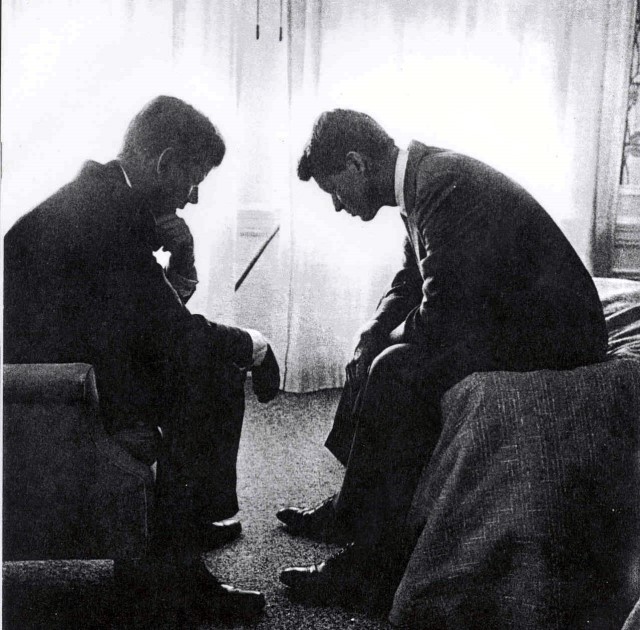
The author hopes a peace movement might develop that picks up where Kennedy left off in 1963. Indeed, foundational to the premise of JFK and the Unspeakable is a speech Kennedy gave to the graduating class at the American University in which he calls for peace, nuclear disarmament, respect for national movements in post-colonial countries, and unilaterally announces that the U.S. would cease atmospheric testing of hydrogen bombs (up to which time the U.S. had exploded 70 in the South Pacific).
This speech shows Kennedy’s peace credentials but also highlights the collision course he was on with agents of the national security state.
To honor Kennedy and get justice for his assassination, a peace movement must demand accountability of the government with an independent and transparent investigatory commission that would have access to all relevant information to reveal the truth about JFK’s murder and the events of 9/11.
In this book about JFK, Douglas quietly invokes Ghandi’s nonviolent call for a revolution that would build a world at peace and, by implication, drive governments to marshal all necessary resources to repair the earth and affirm the dignity of human-kind as eco-stewards of the earth, a vision that is diametrically opposed to the objectives and interests of the military industrial complex.
JFK and the Unspeakable: Why He Died and Why It Matters is a book by theologian and Catholic Worker James W. Douglass that analyzes the presidency of John F. Kennedy as well as the events surrounding his assassination. The book is drawn from many sources, including the Warren Report.
Originally published in 2008, HERE.
Check out the link below to Barnes & Noble for the book: barnesandnoble.com/w/jfk-and-the-unspeakable-james-w-douglass/1101376731
Please let us know if you are interested in working on or leading a TAP project that will help advance the TAP mission or suggest a project of your own.
|
|
Thank you for Signing Up |

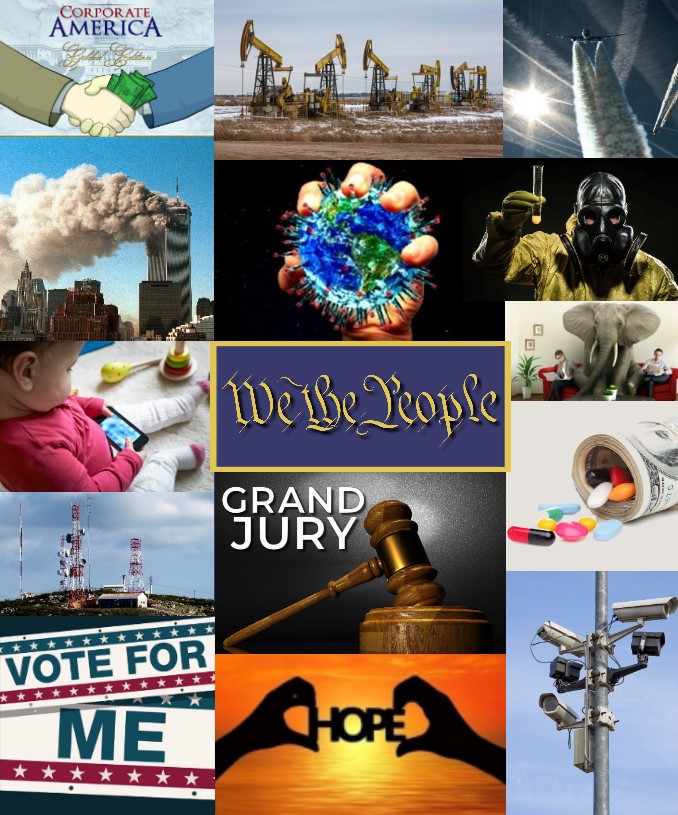
Rest assured that the information being submitted will only be used by the Truth Action Project to correspond with you. Please see our privacy policy.